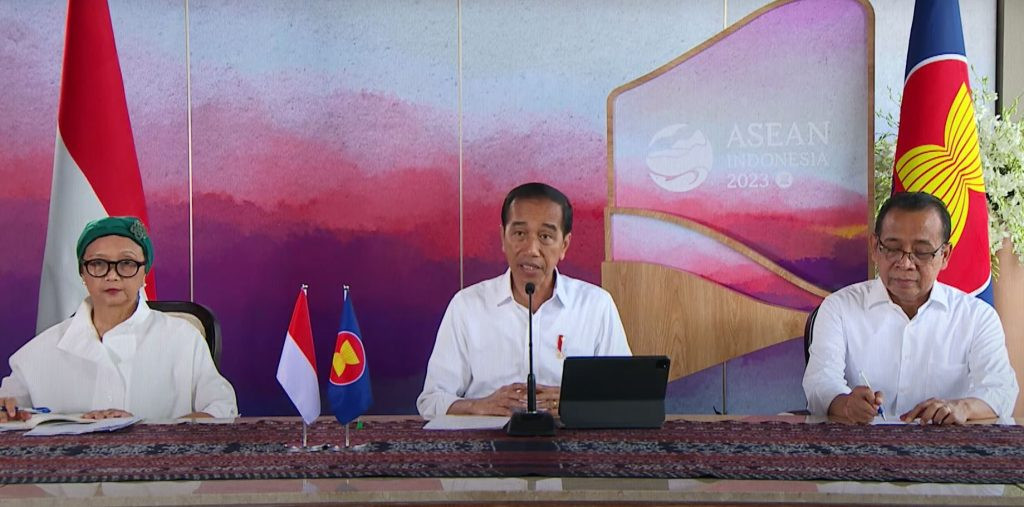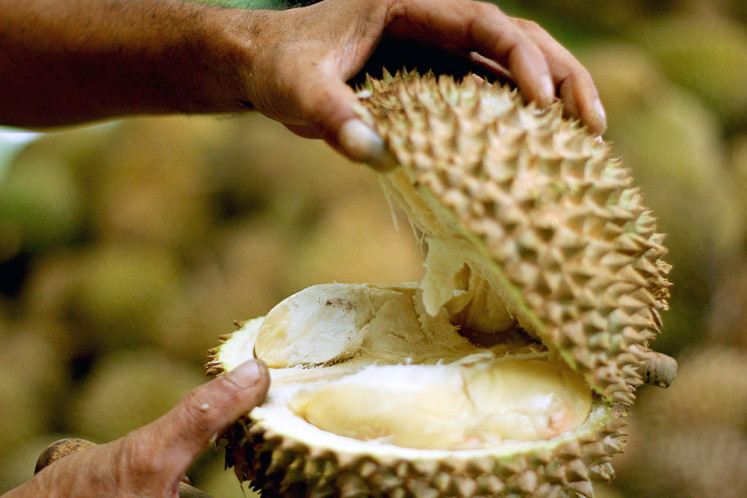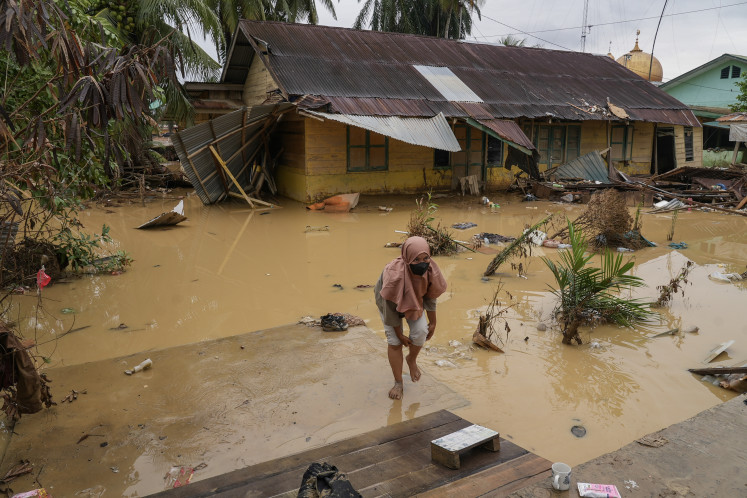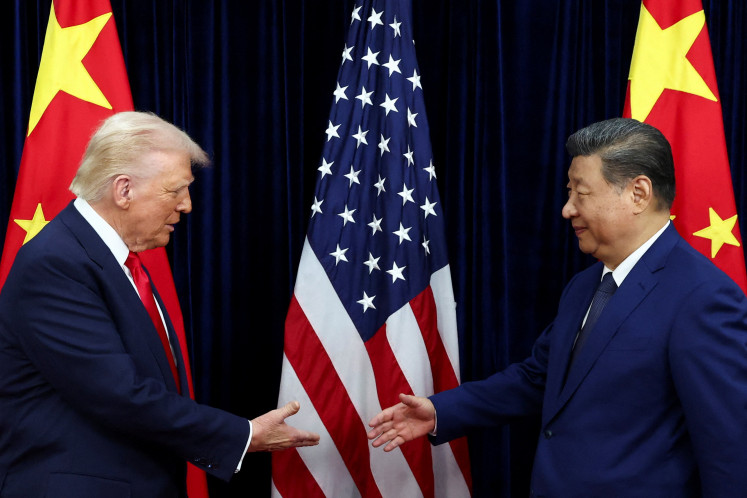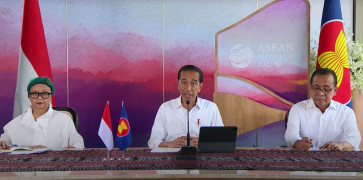Popular Reads
Top Results
Can't find what you're looking for?
View all search resultsPopular Reads
Top Results
Can't find what you're looking for?
View all search resultsIndonesia must not fail its commitment to ASEAN socio-cultural agenda
Civil society in the region has come together to stand in solidarity to defend human rights and democracy, utilizing the framework of a states-led regionalism project called ASEAN.
Change text size
Gift Premium Articles
to Anyone
A
head of the opening of the 42nd ASEAN Summit in Labuan Bajo, the Indonesian government announced its commitment to prioritizing the regional socio-cultural pillar, aiming at strengthening cooperation in the protection of migrant workers, regional health architecture and enhancing the development of rural regions.
However, Indonesia, the chair of ASEAN 2023, has so far omitted engagement with civil society and the ASEAN Civil Society Conference/ASEAN People’s Forum (ACSC/APF), which is recognized in the ASEAN Socio-Cultural Blueprints 2015 as an annual forum for civil society engagement in ASEAN.
One of the three pillars of the ASEAN Community, the ASEAN Socio-Cultural Community (ASCC) was adopted during the 14th ASEAN Summit in 2009 with a vision of building an "ASEAN Community that is people-centered and socially responsible with a view to achieving enduring solidarity and unity among the countries and peoples of ASEAN”.
In 2015, or seven years after the ASEAN Charter was adopted, with the formal establishment of the ASCC, ASEAN for the first time stated its commitment “to build a rules-based, people-oriented, people-centered ASEAN Community, where the people enjoy human rights and fundamental freedom, higher quality of life and the benefits of community building” in the ASEAN Community Vision in a document titled “ASEAN 2025: Forging Ahead Together”.
Today, under the chairmanship of Indonesia, those beautiful words sound empty. Many of us, who work on the frontline defending human rights and fundamental freedom of the people, do not feel that we are considered actors in the ASEAN agenda, as civil society has not been invited to nor mentioned in key events and communications.
During the summit this week, ASEAN leaders are holding interface meetings with representatives of four groups, namely, the ASEAN Inter-Parliamentary Assembly, ASEAN Youth, the ASEAN Business Advisory Council and the High-Level Task Force on ASEAN Community’s Post-2025 Vision. The press statement by the chair of the ASEAN Foreign Ministers’ Retreat in February, an annual high-level forum for ASEAN foreign ministers, did not mention engagement with civil society.
Ahead of the ASEAN Summit this week, despite no engagement from the Indonesian government, the Regional Strategic Gathering of ACSC/APF 2023 was held on May 5-7 at Atma Jaya Catholic University, Jakarta, in a hybrid setting where around 200 participants joined online and in-person. The venue was a reminder of Indonesia’s Reform era, which began exactly 25 years ago in May 1998. Under the agenda of Reform, civil society, academics and the student community came together to democratize Indonesia and contributed to national history by overthrowing the Soeharto regime.

